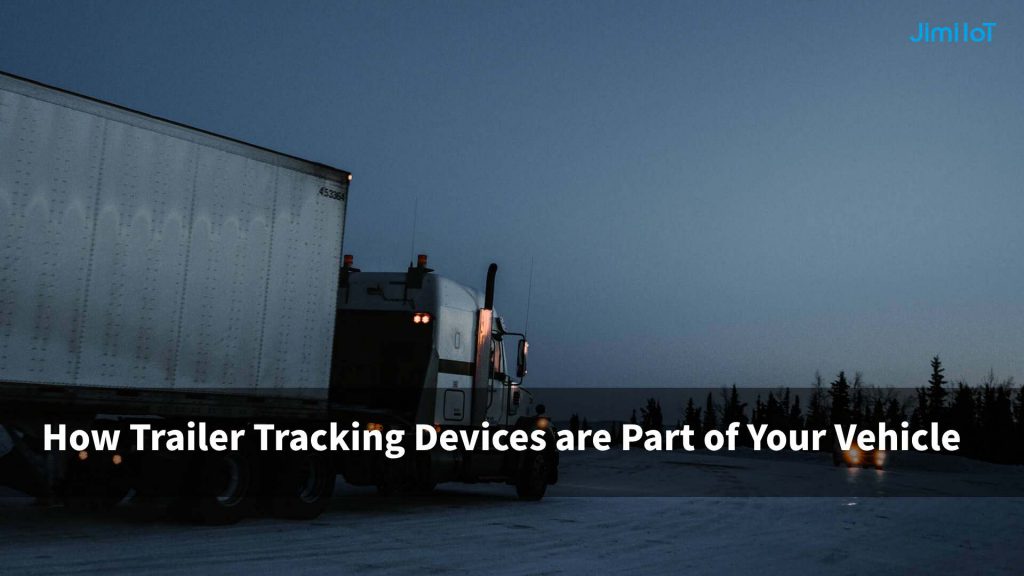The rapid globalization and expansion of supply chains in recent years have increased the importance of efficient fleet management. This has led to a surge in demand for advanced tracking solutions, including trailer tracking devices. With growing market conditions, understanding the principles, types, and applications of trailer tracking devices becomes crucial for businesses seeking to optimize their logistical operations. This article delves into the world of trailer tracking devices, their significance, and how to choose the right device for your business.

Trailer Tracking Market Conditions
In 2021, the global trailer tracking device market was valued at approximately $1.2 billion and is projected to reach $2.1 billion by 2027, growing at a Compound Annual Growth Rate (CAGR) of 9.6% during the forecast period (2021-2027) . This significant growth can be attributed to the increased demand for real-time tracking solutions, improved freight security, and cost-effective operations.
The North American region holds the largest market share for trailer tracking devices, followed by Europe and the Asia-Pacific regions. This is likely due to the well-established logistics and transportation infrastructure and the adoption of advanced technologies in these regions.
Trailer Tracking Device Principle
A trailer tracking device is an electronic instrument that uses GPS (Global Positioning System) or a combination of GPS and GSM (Global System for Mobile Communications) to provide real-time location information, security, and telematics data for trailers. The device transmits data to a central server, allowing fleet managers to monitor their trailers in real-time, optimize routes, reduce fuel consumption, and improve overall operational efficiency.
Trailer Tracking Device Types
There are two primary types of trailer tracking devices: active and passive.
- Active Trailer Tracking Devices: These devices transmit real-time location and status information to a central server at regular intervals. They usually require a continuous power source and a subscription-based service for data transmission. Active devices provide real-time monitoring and alerts, making them ideal for businesses with high-value cargo or time-sensitive deliveries.
- Passive Trailer Tracking Devices: These devices store location and status information locally on the device and transmit the data when a predetermined event occurs (e.g., the trailer is connected to a power source, or the device is within range of a designated access point). Passive devices are typically less expensive than active devices and do not require a subscription service. However, they provide limited real-time monitoring capabilities.
Trailer Tracking Device Application Scenarios
Trailer tracking devices have a wide range of applications, including:
- Real-time location tracking: Fleet managers can monitor the location of their trailers in real-time, enabling them to optimize routes, reduce fuel consumption, and make timely decisions in case of emergencies.
- Theft prevention and recovery: Trailer tracking devices provide alerts in case of unauthorized movement or tampering, allowing fleet managers to take immediate action to prevent theft or recover stolen assets.
- Maintenance scheduling: By monitoring mileage, engine hours, and other telematics data, trailer tracking devices help schedule preventive maintenance and reduce downtime.
- Temperature monitoring: For temperature-sensitive cargo, such as perishable goods, trailer tracking devices can monitor and send alerts if the temperature exceeds set limits, ensuring product quality and safety.
Why Does Your Fleet Need a Trailer Tracking Device?
Implementing a trailer tracking device in your fleet brings several benefits, including:
- Improved operational efficiency
- Enhanced security for high-value cargo
- Reduced fuel consumption and emissions
- Better customer service through real-time monitoring and accurate ETAs
- Compliance with regulatory requirements for certain industries
How to Choose the Right Trailer Tracking Device?
When selecting a trailer tracking device, consider the following factors:
- Type of device: Determine whether an active or passive device is more suitable for your business needs.
- Features: Identify the features that are most important to your operations, such as real-time tracking, geofencing, temperature monitoring, and maintenance alerts.
- Ease of installation: Choose a device that can be easily installed and does not require significant modifications to your trailers.
- Cost: Consider both the upfront cost of the device and any ongoing subscription fees for data transmission and software services.
- Integration: Ensure the device can integrate seamlessly with your existing fleet management software or other tools your team uses. Jimi offers an API protocol to integrate ourdevices with your transportation managementsystem (TMS) and enable you to access all thedata collected by Tracksolid Pro at variousstages of the cold chain.
By understanding the market conditions, principles, types, and applications of trailer tracking devices, businesses can make informed decisions to optimize their fleet operations and enhance security. Choosing the right device for your team will ultimately lead to improved efficiency, cost savings, and a competitive edge in the logistics sector.
Why Jimi IoT?
Jimi IoT relies on innovative solutions for driver status monitoring and vehicle tracking for fleet management, more effective driver tracking, recording, notification, monitoring and efficient fleet management.
Jimi has more than 20+ years of experience in the loT/loV industry and a team of experts to assist you in the adoption. We offer ready-todeploy solutions (with IoT SIM cards for worldwide connectivity) as well as OEM, ODM.and OBM services to suit your industry-specific needs. Contact us at info@jimiiot.com
 US
US ES
ES PT
PT TH
TH VN
VN JP
JP


